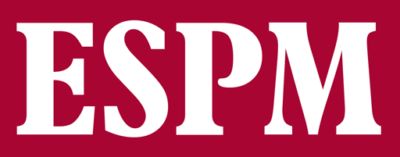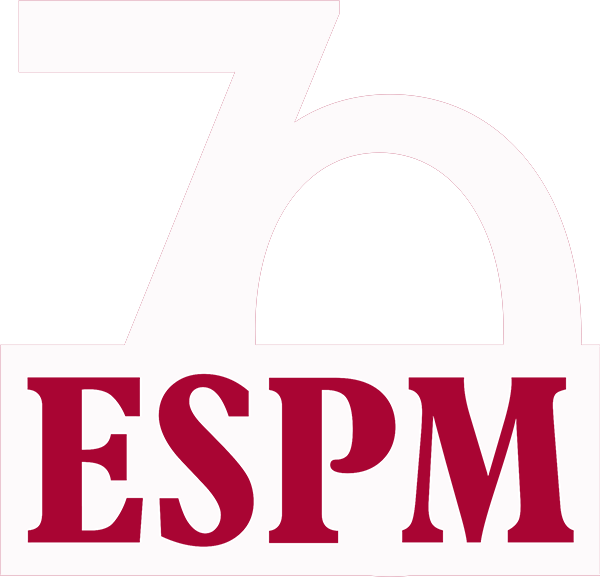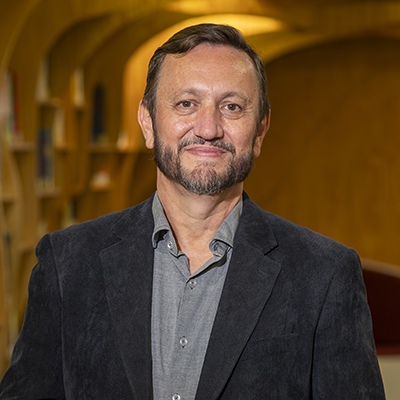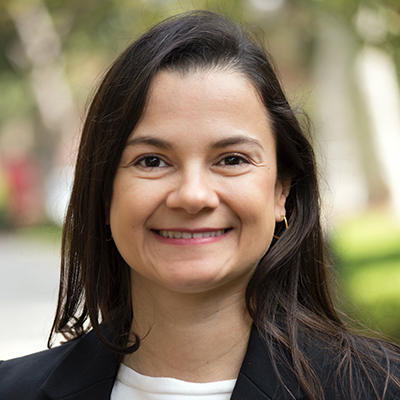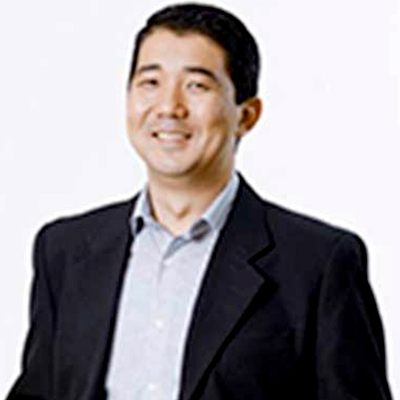Doutorado em Administração (DINTER)
Aulas
Às sextas-feiras, sábados e domingos
Data de início
Modalidade
Presencial
Doutorado em Administração (DINTER)
Selecione a opção do curso para continuar
Modalidade: Presencial
Período: Diurno
Duração: 8 Semestres
Aulas: Às sextas-feiras, sábados e domingos
São Paulo - ESPM Tech
Modalidade: Presencial
Período: Diurno
Duração: 8 Semestres
Aulas: Às sextas-feiras, sábados e domingos
São Paulo - ESPM Tech
Sobre o curso
Marketing, Estratégia e Inovação em Gestão Internacional
O curso de doutorado concentra-se na área de administração, que se preocupa com a gestão das organizações que conduzem negócios no ambiente doméstico e internacional. Esta envolve questões de adaptação local e integração global, análise dos mercados domésticos e internacionais, e distribuição das atividades de Marketing, Produção e Inovação (Pesquisa e desenvolvimento), Estratégias de internacionalização e transferência de conhecimento entre subsidiárias, modos de entrada, e alocação de recursos.
Linhas de pesquisa
O curso está organizado em duas linhas de pesquisa.
Marketing
Estratégia & Inovação em Gestão Internacional
Marketing
Envolve estudos e pesquisas orientados para construção do conhecimento relacionado à dimensão do marketing. Abrange estudos relacionados ao comportamento do consumidor, ações de marketing, neurociência, branding, e a gestão do marketing em importantes setores como agronegócios, franquias e varejo no mercado doméstico e internacional.
Coordenação:
- Profa. Dra. Thelma Rocha Rodrigues
Estratégia & Inovação em Gestão Internacional
Envolve estudos e pesquisas que compreendem a inovação e estratégia no processo de internacionalização das empresas englobando o planejamento e a estruturação das funções internacionais, cadeia global de valor, o papel e a estratégia das subsidiárias e o processo de internacionalização em diversos setores como infraestrutura, bancário, farmacêutico, educação. Abrange ainda uma formação interdisciplinar e integrada por meio de conhecimento da inovação no ambiente internacional, envolvendo estudos sobre gestão estratégica da inovação, inovação colaborativa, inovação em subsidiárias de empresas multinacionais.
Coordenação:
- Prof. Dr. Ilan Avrichir
Pesquisa ESPM
Conheça as pesquisas e ações desenvolvidas pelo
Programa de Pós-Graduação Stricto Sensu em
Administração

Instituição receptora do DINTER:
UNIVAG - Centro Universitário
600h
de conteúdo
8 Semestres
Conclusão do curso
Presencial
Modalidade do curso
Estrutura curricular
O 1º Módulo do DINTER será o da disciplina “Oficina de Pesquisa Científica”, ministrada pelos professores Mário Ogasavara e Mateus Ponchio. Este módulo está previsto para ocorrer nos dias 17, 18 e 19 de abril de 2020 nas dependências do UNIVAG.
As datas previstas para os módulos subsequentes (do ano de 2020) são: 22, 23 e 24 de maio; 19, 20 e 21 de junho; 07, 08 e 09 de agosto; 11, 12 e 13 de setembro; 02, 03 e 04 de outubro; 06, 07 e 08 de novembro; e 04, 05 e 06 de dezembro.
Introduzir ao aluno as principais técnicas de análise quantitativa multivariada, estimulando os estudantes para a adição dessas abordagens quantitativas em seus problemas de pesquisa, capacitando-os para a busca e análise estruturada das informações. Apresentar os conceitos e ferramentas computacionais quantitativas com as respectivas aplicações dentro do campo de pesquisa de Administração. Ementa Introdução aos conceitos, técnicas e ferramentas de análise quantitativa multivariada. Regressão Múltipla. Inferência Estatística. Análise de Covariância. Análise de Componentes Principais. Análise Fatorial. Análise Discriminante. Análise de Clusters. Equações Estruturais (Structural Equation Modeling).
O objetivo desta disciplina é discutir os principais temas relativos ao comportamento do consumidor em um enfoque internacional. Apresentação e discussão de temas selecionados de comportamento do consumidor, com discussão sobre aspectos metodológicos e conceituais. Ao final da disciplina o aluno deverá: Entender os conceitos relativos ao comportamento do consumidor; Entender como o comportamento do consumidor influencia o processo de aquisição e consumo; reconhecer as principais áreas de estudo na área internacional; desenvolver habilidade para identificar aplicações de conceitos e teorias de comportamento do consumidor na elaboração de pesquisas com foco na área internacional. Ementa A pesquisa em comportamento do consumidor – a questão do internacional/global; Tipos e métodos de pesquisa; Cultura e dimensões da cultura; Cultura e valores; Comportamento intergrupos – etnocentrismo, patriotismo, nacionalismo; Identidade nacional; Consumo étnico, imigração e migração; Características individuais do consumidor; Consumidor global e cosmopolitanismo; Atitudes e país de origem e marca país.
Propiciar uma integração acadêmica entre o curso de graduação em Administração e o programa de pós-graduação em Administração, mestrado em Gestão Internacional. Permitir aos alunos uma reflexão da prática docente considerando as dimensões epistemológicas, pedagógicas e políticas e promover a formação didático-pedagógica dos mestrandos. Ementa: Os múltiplos atores envolvidos nos processos educativos. As teorias de aprendizagem, planejamento e desenvolvimento da atividade docente. A aprendizagem ativa como norteadora da eleição de estratégias de ensino. O planejamento para a criação de situações de aprendizagem: os planos de aprendizagem. Os objetivos do curso como âncora da concepção da disciplina e do plano de ensino e aprendizagem. O programa como uma obra aberta. Materiais didáticos de suporte à aprendizagem. A avaliação e acompanhamento da aprendizagem como forma de percepção do nível de apreensão do estudante e de orientação da mediação docente: reflexão, concepções e instrumentos.
As diferentes correntes teóricas da estratégia e inovação, as visões da estratégia e inovação e as diferentes estratégias de modos de entrada no mercado internacional.
O objetivo geral da disciplina é apresentar as especificidades das estratégias em mercados emergentes. O objeto de estudo são as multinacionais emergentes e as multinacionais estrangeiras em mercados emergentes. Três objetivos específicos delineiam o programa da disciplina: A importância de estudar o impacto do ambiente institucional para as empresas de e em mercados emergentes. Características dos mercados emergentes. A vantagem competitiva oriunda da atuação em mercados emergentes. Ementa: Estratégia e Ambiente Institucional. Vazios Institucionais, Liabilities of foreignness, Distancia Institucional e Estratégia, estratégia de empresas estrangeiras em mercados emergentes, estratégias de multinacionais emergentes. A questão do primeiro versus último entrante. Especificidades das empresas do Brasil perante as empresas Chinesas, Russas e Indianas. Multinacionais Latino Americanas.
O objetivo geral desta disciplina é desenvolver o pensamento científico e crítico nos estudantes, entendendo o conhecimento como função da atividade ativa da mente humana em contato com a realidade, e entendendo a diversidade de concepções do que seja o conhecimento e do que seja a realidade, mormente a realidade social. Ementa O Conhecimento: possibilidades, origem e essência. Paradigmas do pensamento sociológico e seus principais autores. Paradigmas da Filosofia da Ciência e seus principais autores. O Método. A falsa neutralidade das técnicas. Revoluções no pensamento científico. As teorias. Análise crítica de teorias administrativas específicas.
O objetivo geral desta disciplina é tornar os alunos proficientes na operacionalização do arcabouço teórico utilizado nas pesquisas e publicações em gestão internacional e negócios internacionais, bem como leitura e escrita de papers na área. O grau de proficiência deverá permitir que a) identifiquem, compreendam e sejam capazes de criticar o referencial teórico de dado estudo e b) dominem mais profundamente a tradição teórica de seu próprio projeto de dissertação Ementa As principais abordagens ao fenômeno internacional e suas teorias. Teorias de Negócios Internacionais de Base Econômica (Teoria dos Custos de Transação / Internalização, Teoria do Ciclo-de-Vida do produto, Hymer e a lógica do Investimento Direto, Dunning e o paradigma eclético, Buckley e Casson e a Internalização dos custos das atividades intermediárias e Institucionalismo econômico). Teorias de Base Comportamental de Uppsala (Gradualismo, Distância Psíquica, Network). Teorias Gerenciais (Estratégicas) de Gestão Internacional (Bartlett e Ghoshal e as principais variáveis da estratégia internacional, Fluxo de Conhecimento na Empresa Multinacional). Outros referenciais teóricos relevantes (Pesquisa intercultural em Gestão Internacional).
O objetivo é proporcionar ao aluno uma visão abrangente sobre o agronegócio focando os aspectos de marketing e estratégia no contexto global. Ementa A dinâmica de funcionamento do complexo agroindustrial no Brasil e no mundo. As inter-relações de valor entre os segmentos das cadeias agroindustriais e destes com as instituições. A dimensão e o funcionamento dos sistemas integrados de produção de alimentos, fibras, biomassa e bicombustíveis. A evolução, o conceito e a aplicação das estratégias e táticas de marketing a montante e a jusante do complexo agroindustrial. As estratégias mercadológicas e sua coordenação nas cadeias produtivas em seus diferentes segmentos (indústria de máquinas e insumos, produção agropecuária, agroindústria, indústria, distribuição e varejo). O comportamento do consumidor final de alimentos e do produtor agrícola. Aspectos emergentes como certificação, sustentabilidade e segurança em alimentos.
Objetiva-se apresentar, discutir e avaliar as estratégias e atividades de marketing no contexto global, bem como a construção da pesquisa acadêmica na área. Examina-se como as organizações identificam, desenvolvem e gerenciam produtos e marcas para mercados globais. Inclui-se o estudo do efeito do país de origem, marca país, adaptações de elementos da marca em diferentes contextos. Ementa: Introdução ao marketing global. As diferenças entre marketing internacional e global. A influência do ambiente econômico e a importância dos países emergentes. O ambiente sociocultural. A gestão das oportunidades de mercado. A gestão das estratégias de marketing global. As estratégias de padronização e adaptação do composto de marketing. A implementação dos departamentos de marketing no contexto global. Conceituação produto e marca. Pesquisa em produtos e marcas em contexto internacional. Elementos de marca em diferentes mercados; efeito País de origem; marca país; marca de destino; marca e cultura; comportamento do consumidor.
O objetivo da disciplina é o de apresentar os principais conceitos, técnicas e ferramentas de planejamento, coleta e análise qualitativa de dados/informações para auxiliar nos processos de planejamento, coleta e análise de dados em pesquisa na área de administração. Ementa Pesquisa qualitativa. Estudo de caso. Abordagem fenomenológica. História. Etnográfica. Grounded Theory. Coleta de análise de dados. Validade e Confiabilidade. Processo Geral de Pesquisa Qualitativa.
O objetivo da disciplina é o de apresentar os principais conceitos, técnicas e ferramentas de análise estatística que podem auxiliar nos processos de planejamento e análise em pesquisa na área de Administração. Ementa Principais técnicas utilizadas em análise quantitativa. Introdução à análise de dados: tabelas e gráficos; apresentação de dados. Principais distribuições: discretas e contínuas. Amostragem e distribuições amostrais. Estimação pontual e intervalar. Testes de hipóteses paramétricos e não paramétricos. Análise de variância. Regressão simples e séries temporais.
O objetivo geral desta disciplina é auxiliar os alunos na construção de um estudo qualitativo em nível de doutorado. Ementa Estudos qualitativos na pesquisa em Administração: método de estudo de caso qualitativo, grounded theory, pesquisa-ação, história oral. Técnicas de coleta e de tratamento dos materiais qualitativos. A validação dos resultados de pesquisas conduzidas com o suporte do método qualitativo. O desenvolvimento da análise de conteúdo e o software Atlasti.
Os objetivos da disciplina são: apresentar aspectos teóricos e práticos associados à mensuração de variáveis e de construtos utilizados em pesquisas científicas em geral e, com maior ênfase, no campo de marketing; identificar, em trabalhos científicos, quais são os construtos teóricos abordados e as maneiras utilizadas pelos pesquisadores para operacionalizá-los, bem como refletir sobre estas escolhas; desenvolver a habilidade de formular escalas e instrumentos de medida para uso em pesquisas de autoria dos próprios alunos. Ementa Mensuração em ciências sociais e comportamentais: debate epistemológico e definições centrais. Modelo geral de mensuração: construtos latentes, requisitos de escalas, algumas propostas de mensuração. Avaliação de escalas: dimensionalidade, confiabilidade, validade. Confiabilidade: erro, amostra de domínio, procedimento de teste-reteste, confiabilidade split-half, alfa de Cronbach, outros. Validade: definição, tipos de validade, formas de acessá-la. Construtos de natureza formativa e reflexiva. Vantagens e desvantagens no uso de escalas disponíveis na literatura. Escolha entre máxima comparabilidade e máxima confiabilidade em pesquisas internacionais.
O objetivo geral desta disciplina é ajudar os participantes a desenvolver habilidades para escrever textos acadêmicos bem estruturados e atrativos visando à publicação em periódicos nacionais e internacionais. Serão abordados: características da escrita acadêmica; o planejamento do artigo; a estrutura do artigo; o sistema de avaliação e revisão por pares. Ao final, espera-se que os participantes consigam estruturar textos obedecendo às convenções e exigências do discurso acadêmico.
Com a organização e oferta da primeira edição da disciplina Didática do Ensino Superior, o mestrado de Administração reafirma seu compromisso de colaborar para a formação de professores pesquisadores na área de Gestão Internacional e reforça a sua identidade de instituição de educação superior. Com o suporte de autores e textos selecionados, a disciplina proporcionará a discussão de temas nucleares da educação superior, resgatando teorias e metodologias que favoreçam a reflexão sobre a prática docente pela renovação de saberes. Ementa: A organização do sistema brasileiro de educação superior. As teorias de aprendizagem e o desenvolvimento potencializado da atividade docente. Ensino versus aprendizagem ou ensino comprometido com a aprendizagem. A educação centrada no professor e a educação centrada no aprendiz: méritos, limitações e adequações. A aprendizagem (ativa / significativa) como norteadora da eleição de estratégias de ensino. Reflexões acerca do jovem e de sua presença em sala de aula. O planejamento para a criação de situações de aprendizagem: os planos de aprendizagem. Os objetivos do curso como âncora da concepção da disciplina e do plano de ensino e aprendizagem. O programa como uma obra aberta. Avaliação e acompanhamento da aprendizagem como forma de percepção do nível de apreensão do estudante e de orientação da mediação docente: reflexão, concepções e instrumentos.
Apresentar uma ampla visão das principais teorias em uso nas literaturas de Marketing e Comportamento do Consumidor; desenvolver as habilidades dos alunos para identificar problemas de pesquisa e propor soluções conceituais e empíricas para esses problemas; treinar a fundamentação teórica de problemas e hipóteses de pesquisa e a identificação de possíveis contribuições conceituais decorrentes de suas investigações; melhorar a percepção dos alunos das orientações metodológicas interdisciplinares encontradas em estudos da área
Créditos exigidos em disciplinas: 36 (Carga Horária: 540)
Créditos em Atividades Complementares Obrigatórias: 4 (Carga Horária: 60)
Créditos em Supervisão de Tese: 20 (Carga Horária: 300)
Total: 60 (Carga Horária: 900)
Período: sextas-feiras, sábados e domingos
Processo de seleção
Saiba como funciona cada etapa do processo de seleção
0
Avaliação da documentação e pré-projeto de pesquisa
Inscrição on-line e pagamento da taxa.
0
Prova de inglês
Composto de questionário
0
Entrevista
A entrevista é a etapa essencial do processo de seletivo. Nesse momento, você conhecerá o resultado do processo de admissão.
0
Teste ANPAD
Aprovados podem efetivar matrícula, diretamente na unidade.**
EDIÇÃO DE FEVEREIRO – Data de realização: 05/03/2023
EDIÇÃO DE JUNHO – Data de realização: 18/06/2023
EDIÇÃO DE SETEMBRO – Data de realização: 24/09/2023
EDIÇÃO DE NOVEMBRO – Data de realização: 26/11/2023
O pré-projeto de pesquisa deverá ser apresentado entre 4 e 6 páginas para os candidatos ao Programa de Mestrado ou ao Programa de Doutorado (fonte: Times New Roman tamanho 12, espaço 1,5 linha) e conter os seguintes itens:
- Capa com o Título provisório e Identificação do Candidato
- Introdução: contextualização e introdução à temática contendo:
- Problema de Pesquisa
- Objetivos
- Justificativa
- Fundamentação Teórica
- Metodologia
- Cronograma Proposto
- Referências
O edital é essencial, pois nele estão detalhadas todas as informações e diretrizes cruciais para participar do processo seletivo. É por meio dele que você candidato terá acesso a todas as orientações necessárias, garantindo transparência, igualdade de oportunidades e conformidade com os requisitos estabelecidos.
*O link do processo seletivo on-line será enviado por e-mail após o pagamento da taxa de inscrição.
**Não reservamos vaga para candidatos aprovados. Garanta sua vaga efetuando a matrícula, conforme disponibilidade de vagas para o curso.
Aqui você aprende com os melhores profissionais do mercado.
“Nosso Programa tem
por foco a Gestão Internacional,
tanto na perspectiva do marketing
quanto da estratégia e inovação.
Um mestrado ou doutorado nesta
área é um desafio transformador
que ilumina mentes e amplia
oportunidades profissionais”.
Professores do curso
Doutorado em Administração (DINTER)
Início das aulas: 05/02/2024
Onde o curso acontecerá?
São Paulo – ESPM Tech
Rua Joaquim Tavora, 1240
Vila Mariana - São Paulo - SP
- 0800 607 3777
O serviço de VAN* da ESPM ocorre de segunda a sexta-feira, na saída do Metrô Ana Rosa – Av. Conselheiro Rodrigues Alves, 65 – em frente à Caixa Econômica Federal.
Horários:
Das 6h30 às 13h30
Das 14h30 às 17h
Das 18h às 23h30
*Serviço gratuito e exclusivo aos alunos da ESPM. Apresente a carteirinha de aluno no momento do embarque.
O serviço de VAN* da ESPM ocorre de segunda a sexta-feira, na saída do Metrô Ana Rosa – Av. Conselheiro Rodrigues Alves, 65 – em frente à Caixa Econômica Federal.
Horários:
Das 6h30 às 13h30
Das 14h30 às 17h
Das 18h às 23h30
*Serviço gratuito e exclusivo aos alunos da ESPM. Apresente a carteirinha de aluno no momento do embarque.
Perguntas frequentes
Ficou com alguma dúvida?
Os cursos de Pós-Graduação Stricto Sensu são programas acadêmicos e profissionais de nível avançado que englobam mestrados e doutorados. Eles têm uma duração longa, geralmente com duração entre 18 e 24 meses para o mestrado e entre 36 e 48 meses para o doutorado. O objetivo central desses cursos é formar lideranças capazes de trazer avanços para o conhecimento em suas áreas por meio de pesquisas de alto nível. Durante o curso, os estudantes devem completar créditos de disciplinas obrigatórias e eletivas e realizar pesquisas originais em sua área de estudo. Ao final do programa, a pesquisa desenvolvida pelo estudante é apresentada e avaliada por uma banca examinadora como parte dos requisitos para a conclusão do curso. A ênfase, aqui, está nas atividades de pesquisa, permitindo que os estudantes desenvolvam habilidades e produzam trabalhos acadêmicos, técnicos e tecnológicos originais que contribuam para o avanço do conhecimento em seu campo. Durante o curso, os estudantes desenvolvem habilidades críticas de análise, pesquisa, redação acadêmica e apresentação, que são transferíveis para muitos campos profissionais e para a sociedade em geral.
Sim. É necessária a aprovação da CAPES para um curso Stricto Sensu funcionar.
A CAPES é uma fundação vinculada ao MEC, que regula e avalia todos os cursos de mestrado e doutorado do país.
No caso dos mestrados, todo estudante que tenha concluído um curso de graduação. No caso dos doutorados, todo estudante que tenha concluído um curso de mestrado ou, no caso do doutorado direto, todo estudante que tenha concluído um curso de graduação. Em todos os casos, é necessário que o estudante seja aprovado em processo seletivo próprio de cada curso da ESPM.
Sim, isso é cada vez mais comum, posto que os limites entre as disciplinas estão cada vez mais fluidos. Por natureza, as áreas de Administração e Comunicação são multidisciplinares. No caso do PPGECEI, especificamente, como não existe graduação em Economia Criativa, as turmas são formadas por estudantes oriundos de várias áreas do conhecimento e o curso é considerado interdisciplinar.
Assim, os estudantes, além de optarem pelos cursos do PPGCOM, PPGA, PPGCC e PPGECEI, muitas vezes diferentes do escolhido na graduação, podem ser instruídos pelos docentes a mudarem de linha de pesquisa para adequarem melhor o seu projeto, visto que ele será a base de todo o seu curso.
Sim, os cursos Stricto Sensu (literalmente: de sentido específico, e não amplo) são os mestrados, mestrados profissionais, doutorados e doutorados profissionais, que habilitam o egresso à docência em cursos de graduação, pós-graduação lato sensu e pós-graduação stricto sensu (no caso do doutorado).
O mestrado acadêmico e o mestrado profissional são dois tipos diferentes de programas de pós-graduação, e suas principais diferenças estão relacionadas aos objetivos e à abordagem:
Mestrado Acadêmico: O mestrado acadêmico é voltado principalmente para a pesquisa acadêmica e científica, embora, cada vez mais, seja demandada a aplicabilidade da pesquisa. Ele enfatiza o aprofundamento do conhecimento teórico e a produção de pesquisa original. Os estudantes de mestrado acadêmico geralmente conduzem estudos mais teóricos e têm como objetivo contribuir para o avanço do conhecimento em sua área de estudo. É uma escolha indicada para aqueles que desejam seguir carreiras acadêmicas, como professores universitários e pesquisadores e querem se destacar em suas respectivas áreas de estudo. Além da academia, o mestrado acadêmico também pode abrir portas para carreiras em pesquisa em instituições governamentais, empresas privadas e organizações sem fins lucrativos que valorizam habilidades de pesquisa e análise.
Mestrado Profissional: O mestrado profissional, mesmo habilitando o concluinte para lecionar em qualquer instituição de ensino, está mais direcionado para as demandas do mercado de trabalho. Ele tem um foco prático e aplicado, com o objetivo de preparar os estudantes para solucionar problemas e inovar no ambiente profissional. Os programas de mestrado profissional costumam ser mais orientados para o desenvolvimento de habilidades práticas e competências que podem ser aplicadas diretamente em empresas e organizações. É uma escolha adequada para profissionais que desejam avançar em suas carreiras ou buscar oportunidades de liderança em suas áreas de atuação.
Ambos os tipos de mestrado conferem o grau de mestre, mas o enfoque e as metas de aprendizado são distintos. Portanto, a escolha entre um mestrado acadêmico e um mestrado profissional dependerá dos objetivos individuais de carreira e das aspirações profissionais de cada estudante.
O doutorado acadêmico e o doutorado profissional são dois tipos diferentes de programas de pós-graduação, e suas principais diferenças estão relacionadas aos objetivos e à abordagem:
Doutorado Acadêmico: O doutorado acadêmico é voltado principalmente para a pesquisa teórica, o avanço da ciência e a produção de conhecimento original, expandindo o conhecimento e preparando o indivíduo para a carreira acadêmica. O objetivo é formar pesquisadores e professores para universidades e centros de pesquisa. Sua metodologia tem ênfase em pesquisa original, análise crítica e produção científica.
Doutorado Profissional: O doutorado profissional, por outro lado, está mais direcionado para a aplicação prática do conhecimento para resolver desafios práticos da vida profissional em contextos aplicados, preparando líderes e especialistas para atuarem e gerarem inovação no mercado de trabalho.
Ambos conferem o título de doutor, mas com direcionamentos diferentes em termos de carreira e aplicação do conhecimento. Portanto, a escolha entre um doutorado acadêmico e um doutorado profissional dependerá dos objetivos individuais de carreira e das aspirações profissionais de cada estudante.
Não, o título obtido é rigorosamente o mesmo. Ambos os tipos de mestrado conferem o grau de mestre, mas o enfoque e as metas de aprendizado são distintos. Portanto, a escolha entre um mestrado acadêmico e um mestrado profissional depende dos objetivos individuais de carreira e das aspirações profissionais de cada estudante.
Não, o título obtido é rigorosamente o mesmo. Ambos os tipos de doutorado conferem o grau de doutor, mas o enfoque e as metas de aprendizado são distintos. Portanto, a escolha entre um doutorado acadêmico e um doutorado profissional depende dos objetivos individuais de carreira e das aspirações profissionais de cada estudante.
Estes programas têm por especificidade articular o campo da comunicação aos estudos do consumo. Eles partem da perspectiva de que o consumo é um comunicador das nossas relações sociais mais amplas e de que os meios de comunicação de massa fazem um papel de mediação das várias culturas do consumo. Por isso, interessa aos programas pesquisas que investiguem como as culturas midiáticas e os simbolismos do consumo estão articulados. São programas voltados à análise crítica sobre a sociedade de massa e do consumo, sobre as culturas midiáticas e digitais e sobre as narrativas midiatizadas sobre o consumo, o que inclui o estudo de teorias clássicas e a discussão de abordagens contemporâneas.
Os programas mantêm sua missão de formar docentes e investigadores com qualidade e competência para assumirem responsabilidades pela execução e liderança nas atividades de pesquisa, orientação e ensino na área de Comunicação, em âmbito nacional e internacional. Tanto no Mestrado, quanto no Doutorado, os(as) mestres(as) e doutores(as) atuam na carreira acadêmica, bem como na articulação da pesquisa com ONGs, empresas privadas e setores da sociedade civil.
O Programa de Pós-Graduação Stricto Sensu em Comunicação e Práticas de Consumo da ESPM (PPGCOM-ESPM) teve início em 2006 com o curso de Mestrado Acadêmico e teve o curso de Doutorado aprovado em 2012.
MESTRADO: O Mestrado Acadêmico em Comunicação e Práticas de Consumo da ESPM prepara pesquisadores e professores de excelência para atuar em níveis nacional e internacional. Com início em 2006 e avaliação nota 5 pela CAPES, o programa oferece uma formação sólida em comunicação e consumo, incentivando a liderança em atividades de pesquisa e ensino. Contando com um corpo docente e discente de produção intelectual destacada, o curso é ideal para quem busca especialização de alto nível e reconhecimento no campo acadêmico.
DOUTORADO: O Doutorado em Comunicação e Práticas de Consumo da ESPM visa formar pesquisadores de alta qualificação, capazes de produzir conhecimento relevante para o avanço teórico e metodológico do campo. Iniciado em 2012, o curso consolida a vocação do PPGCOM ESPM para a pesquisa crítica e interdisciplinar, promovendo investigações inovadoras sobre as interfaces entre mídia, cultura e consumo. Com forte ênfase na internacionalização, no diálogo com a sociedade e na articulação entre teoria e prática, o Doutorado prepara docentes e cientistas comprometidos com a produção de conhecimento de impacto acadêmico e social.
Nestes programas são abordados tópicos e temas de pesquisa voltados às necessidades e demandas das organizações nacionais e internacionais com objetivos como crescimento e perenidade e que, para tanto, estão em busca de profissionais capazes de desenhar as estratégias que as levem a caminhar com solidez e segurança, mesmo em cenários de turbulenta transformação. Tanto no mestrado, quanto no doutorado, os(as) mestres(as) e doutores(as) atuam, prioritariamente, na carreira acadêmica, contribuindo para resolver problemas da prática de gestão.
Os cursos de mestrado e doutorado concentram-se na área de administração, área que se preocupa com a gestão das organizações que conduzem negócios no ambiente doméstico e internacional, envolvendo questões de adaptação local e integração global, análise dos mercados domésticos e internacionais, distribuição das atividades de marketing, produção e inovação (pesquisa e desenvolvimento), estratégias de internacionalização e transferência de conhecimento entre subsidiárias, modos de entrada e alocação de recursos.
MESTRADO: Com as linhas de Marketing e de Estratégia e Inovação em Gestão Internacional, o Mestrado em Administração da ESPM capacita profissionais para enfrentar desafios de gestão em mercados globais e locais. Focado em adaptação local e integração global, o curso oferece uma visão aprofundada sobre análise de mercados, estratégias de internacionalização e inovação. Com ênfase na transferência de conhecimento entre subsidiárias e otimização de recursos, o programa prepara líderes para tomar decisões estratégicas e inovadoras, maximizando o impacto de suas organizações em um cenário global competitivo.
DOUTORADO: O Doutorado em Administração da ESPM desenvolve lideranças globais para atuar com inovação e estratégia em mercados internacionais. Voltado a profissionais que buscam excelência em análise de mercados, estratégias de internacionalização e transferência de conhecimento, o curso oferece uma base sólida para pesquisas e práticas que subsidiam decisões de alto impacto em gestão e competitividade global.
Nestes programas se desenvolvem pesquisas científicas com aplicações práticas. Os(as) mestres(as) e doutores(as) formados no PPGCC podem atuar tanto na carreira acadêmica, pois os títulos de mestre(a) ou doutor(a) permite que atuem tanto como docentes em universidades quanto seguir na carreira executiva, levando o ferramental científico para diagnosticar e resolver problemas nas organizações, especialmente nas áreas de negócios, marketing e relações com consumidoras(es). Essa aplicação prática do conhecimento é particularmente valiosa para empresas que buscam uma vantagem competitiva sustentável no mercado.
MESTRADO: Desde 2015, o Mestrado Profissional em Comportamento do Consumidor (MPCC) da ESPM é pioneiro no Brasil com foco exclusivo em aprofundar conhecimentos científicos e práticos na área. Voltado para gestores, especialistas e consultores, o programa é estruturado para unir academia e mercado, oferecendo insights que fortalecem o posicionamento estratégico das empresas. Com duas linhas de pesquisa – Pessoa, Sociedade e Consumo e Consumo, Inteligência e Estratégia –, o curso explora o comportamento do consumidor em cenários B2C e B2B, garantindo uma visão inovadora e responsável para ampliação das vantagens competitivas no mercado.
DOUTORADO: Único programa na América Latina, e dentre os sete existentes no mundo, o programa de doutorado oferece uma aplicação prática e aplicada nas dinâmicas de consumo. Para os profissionais com o título de mestre, a modalidade Doutorado Regular permite o ingresso em um programa único e de excelência, permitindo assim a continuidade da vida acadêmica com o doutorado, para conquistar uma formação ainda mais valorizada no mercado. Para aqueles profissionais que não detém o título de mestre, a modalidade Doutorado Direto permite que sejam cursadas disciplinadoras niveladoras para avançar diretamente para o doutorado, conquistando uma qualificação que é altamente valorizada no mercado.
Integrando rigor acadêmico e práticas de mercado inovadoras para formar profissionais capazes de entender e influenciar as dinâmicas e tendências de consumo.
No PPGECEI, compreendemos a economia criativa como um conjunto de atividades produtivas com crescente importância no atual contexto da economia globalizada. Mas, além desse dinamismo em si, reconhecemos também a contribuição dos setores criativos como elemento estratégico da competitividade e da capacidade inovativa de outros setores da economia. Por meio de uma abordagem interdisciplinar, articulando o conhecimento científico com as demandas dos mercados e da sociedade, os cursos visam a desenvolver profissionais com capacidade de aplicar conceitos e processos científicos na solução de problemas complexos, sendo geradores de inovação e ganhos de competitividade para empreendedores e empresas; melhores políticas públicas para os governos; e melhoria de qualidade de vida para a população em geral
MESTRADO: O Mestre em Economia Criativa, Estratégia e Inovação é capaz de desenvolver estudos e projetos relacionados à dimensão estratégica e inovativa das organizações privadas e públicas, bem como do da sociedade civil, compreendendo a importância da abordagem da economia criativa no atual contexto da globalização. Compreende a economia criativa além das indústrias criativas, reconhecendo o seu transbordamento para outros setores da economia. É um profissional preocupado com os ganhos de competitividade de empresas, criação de novos modelos de negócio, potencialização do empreendedorismo e da inovação, fortalecimento do desenvolvimento econômico das cidades, contribuição no esforço para redução das desigualdades (sociais, de gênero, raciais e outras), proposição de novos modelos educacionais, entre tantas outras possibilidades. Acredita que as competências científicas contribuem para o desenvolvimento de sua carreira, assumindo gradativamente posições e responsabilidades mais importantes nas organizações em que atua.
DOUTORADO: O Doutor em Economia Criativa, Estratégia e Inovação é um profissional com amplo domínio dos métodos científicos e dos processos de criação e implementação de projetos de pesquisa aplicados à realidade profissional em que atua, assim como demonstra domínio temático dos campos da economia criativa, estratégia e inovação. Desenvolve soluções criativas e inovadoras, integrando ferramentas e conceitos do design, da gestão estratégica da inovação, da ciência de dados, da comunicação, da economia, assim como dos campos culturais e artísticos. Utiliza, portanto, de maneira articulada e integrada competências objetivas e subjetivas, lógicas e intuitivas, operacionais e criativas, econômicas e simbólicas para responder aos problemas complexos enfrentados em sua rotina profissional. É um profissional com capacidade para liderar projetos criativos e inovadores, assim como liderar áreas e assumir posições elevadas nas hierarquias das organizações públicas e privadas em que atua.
A CAPES (Coordenação de Aperfeiçoamento de Pessoal de Nível Superior) e o CNPq (Conselho Nacional de Desenvolvimento Científico e Tecnológico) são as principais agências que financiam a formação de recursos humanos a nível de pós-graduação (mestrado acadêmico, doutorado acadêmico e pós-doutorado) no país e no exterior. Desta forma, o financiamento é por meio da concessão de bolsas de estudo.
BOLSAS NO PAÍS
As bolsas CAPES/PROSUP são concedidas à Diretoria Acadêmica de Pesquisa e PósGraduação Stricto Sensu e aos Programas de Pós-Graduação [Administração (PPGA) e Comunicação e Práticas de Consumo (PPGCOM)] por meio de quota no início do ano.
• PROSUP/INTEGRAL: o(a) estudante recebe um valor mensal em sua conta bancária que custeia a sua pesquisa e não há cobrança de mensalidade no período de vigência da bolsa.
• PROSUP/TAXA: o(a) estudante recebe um valor mensal em sua conta bancária que custeia as taxas escolares/mensalidades do curso. O valor repassado pela agência de fomento deve ser utilizado para pagamento do boleto gerado pela ESPM no período de vigência da bolsa. O montante repassado é suficiente para a quitação integral das mensalidades, sem necessidade de complementação por parte do(a) bolsista.
• PROSUP/PRÓ-REITORIA: o(a) estudante recebe um valor mensal em sua conta bancária que custeia as taxas escolares/mensalidades do curso. O valor repassado pela agência de fomento deve ser utilizado para pagamento do boleto gerado pela ESPM no período de vigência da bolsa.
As bolsas CNPq/PIBPG são concedidas à Diretoria Acadêmica de Pesquisa e Pós-Graduação Stricto Sensu e aos Programas de Pós-Graduação [Administração (PPGA) e Comunicação e Práticas de Consumo (PPGCOM)] por meio da candidatura no(a) edital/chamada para apoio a projetos institucionais para pesquisa na pós-graduação.
• MESTRADO: o(a) estudante recebe um valor mensal em sua conta bancária no Banco do Brasil que custeia a sua pesquisa e não há cobrança de mensalidade no período de vigência da bolsa.
• DOUTORADO: o(a) estudante recebe um valor mensal em sua conta bancária no Banco do Brasil que custeia a sua pesquisa e não há cobrança de mensalidade no período de vigência da bolsa.
OBSERVAÇÕES:
1) O(A) estudante ingressante deve arcar com a matrícula e a primeira mensalidade do curso, exceto para os bolsistas PIBPG que são isentos de qualquer taxa, matrícula ou mensalidade.
2) A indicação dos candidatos às bolsas de estudo é feita pela Comissão de Bolsas de cada Programa (PPGA/PPGCOM).
3) O Escritório de Projetos e Apoio à Pesquisa (EPAP) é o departamento que providencia a indicação e o acompanhamento dos estudantes às bolsas de estudo das agências de fomento.
4) Todos os(as) bolsistas, independentemente da modalidade de bolsa concedida, são avaliados(as) anualmente quanto ao desempenho no desenvolvimento dos trabalhos acadêmicos (disciplinas, grupo de pesquisa, orientação, participação em eventos da área e produção científica), bem como nas atividades realizadas com o Programa e a Diretoria Acadêmica de Pesquisa e Pós-graduação Stricto Sensu para que continuem a ser contemplados(as) com a bolsa.
BOLSAS NO EXTERIOR
A concessão da bolsa referente ao Programa de Doutorado Sanduíche no Exterior – CAPES/PDSE ocorre por meio de edital de seleção, que tem o objetivo de fomentar o intercâmbio científico internacional e a qualificação acadêmica dos(as) estudantes de doutorado no Brasil.
O objetivo central do programa é que o(a) doutorando(a) possa ter um período de experiência de pesquisa no exterior, sob a supervisão de um(a) coorientador(a) pertencente a uma instituição de ensino ou pesquisa no exterior, pública ou privada, de relevância para o estudo pretendido. A duração e o remanejamento das bolsas ficam condicionadas ao edital e às normas vigentes da agência de fomento.
BOLSA DE IMPACTO SOCIAL são bolsas concedidas integralmente no valor de 100% do curso de mestrado e doutorado profissional (PPGECEI) de acordo com critérios sociais e a pontuação alcançada no Processo Seletivo.
BOLSAS INSTITUCIONAIS (CONVENÇÃO COLETIVA) são bolsas concedidas para professores(as) e funcionários(as) da ESPM mediante cumprimento de critérios de exigibilidade.
DESCONTO SOBRE MENSALIDADE (ex-aluno) – 5% ou 20%
– Desconto de 5% no valor integral se o(a) candidato(a) for concluinte dos cursos de curta duração, extensão e de férias e de 20% no valor integral, se for concluinte da Graduação e Pós-Graduação (Lato e Stricto – Mestrado ou Doutorado).
DESCONTO SOBRE MENSALIDADE (parceria B2B) – 15%
– Desconto de 15% para funcionários de empresas parceiras.
NOTA: Caso um o(a) estudante ESPM opte pelo desconto, não poderá pleitear nenhuma outra bolsa, pois as elas não são cumulativas.
Matricule-se
Informações sobre o curso de Doutorado em Administração (DINTER)
Modalidade: Presencial
Período: Diurno
Aulas: Às sextas-feiras, sábados e domingos
20% de desconto
No valor de todas as mensalidades do curso para alunos e ex-alunos da graduação e pós-graduação ESPM. O desconto não é acumulativo.5% de desconto
No valor de todas as mensalidades do curso para alunos e ex-alunos dos cursos de extensão da ESPM. O desconto não é acumulativo.- RG e CPF (originais)
- Histórico original de curso superior
- Diploma de curso superior reconhecido pelo MEC, com carga horária mínima de 1600 horas-aula. Na ausência do diploma, o estudante poderá entregar certificado, atestado ou declaração de conclusão de curso com a descrição da data de colação de grau, qual será aceito temporariamente, ficando sob a responsabilidade do estudante a entrega posterior do referido diploma (originais)
No caso de diplomas internacionais, é necessária a sua tradução juramentada, consularização pelo Brasil no país de origem e revalidação, de acordo com a Resolução nº.8, de 4/10/07, do Conselho Nacional de Educação (CNE), disponível em: http://portal.mec.gov.br
Quer atendimento personalizado e saber mais sobre o curso?
Deixe seus contatos e falaremos com você:
Ficou com alguma dúvida?
Podemos te ajudar:
Central de Relacionamento Pós-graduação
De segunda a sexta-feira das 8h às 20h
Visite a ESPM
Participe da visita guiada e aproveite para esclarecer todas as suas dúvidas.
Quem viu este curso gostou destes também...
Acha que este ainda não é o seu curso dos sonhos? Sem problemas, dê uma olhada nestas opções:
Presencial
São Paulo – ESPM Tech
- Presencial
- São Paulo – ESPM Tech
Quem viu este curso gostou destes também...
Acha que este ainda não é o seu curso dos sonhos? Sem problemas, dê uma olhada nestas opções:
